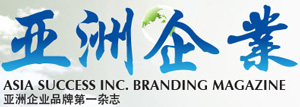Many small and medium businesses in Malaysia have been in the comfort zone for too long and are not ready to compete internationally. As such when the TPPA comes into full force, some 30% may have to close shop, reports HO WAH FOON.
THE Trans-Pacific Partnership Agreement (TPPA) is likely to force out at least 30% of Malaysia’s 650,000 small and medium enterprises (SMEs) if local SMEs are not ready to compete internationally upon its full implementation, according to Michael Kang Hua Keong, president of SME Association of Malaysia.
“Free trade as promoted by TPPA is good for the country. It will give us greater market access and motivate our companies to upgrade their products and services. But the question is: Are our SMEs ready for it?
“The answer is: Most are not.
“I project at least 30% of SMEs will disappear when the TPPA is in full force (two years after signing),” says Kang.
He adds that only about 19% or 123,000 SMEs in the country are involved in exports and the other 81% are involved in local business.
“In the past 20 years, our SMEs have been in the comfort zone. They are not ready to compete internationally in terms of product quality and services and packaging. Hence, they are not ready to face international challenges.
“And when the TPPA comes into full force, with companies from the US offering products and services of better quality here, these SMEs will die if they are not ready by then,” he warns.
Kang adds that SMEs with annual turnover of less than RM10mil will have to buck up or perish. SMEs are defined as companies with annual turnover of less than RM50mil.
He says the association has already conveyed its concerns to SME Corporation Malaysia, a government body formulating SME policies.
The Government is also aware that a lot of Malaysian products are not up to standard as stipulated in the TPPA. In terms of operation, many SMEs are not in compliance with international environmental and green standards, and have no respect for intellectual property rights, taxation regulations, etc.
In terms of productivity, Malaysia is lowly placed with a ratio of 4:1 and 7:1 compared to Singapore and US respectively. This means that one Singaporean can do the job of four Malaysians, and one American can do the job of seven locals, according to Kang.
Both Singapore and US are members of the 12-nation TPPA led by the US. The TPPA negotiation, which took five years to conclude, involves Australia, Brunei, Chile, Canada, Japan, Malaysia, Mexico, New Zealand, Peru, Singapore, the US and Vietnam.
But Kang is relieved that there is a special chapter (Chapter 24) in the TPPA that deals with SMEs. It includes commitments by each TPP party to create a user-friendly website targeted at SME users to provide easily accessible information on the TPP and the ways small firms can take advantage of it.
In addition, the TPP will set up a SME Committee that will meet regularly to review how well the TPP is serving these companies, consider ways to enhance benefits, and oversee cooperation or capacity-building through export counseling, assistance and training programmes, information sharing and trade finance.
Kang says the association will be proposing to the Government to include a clause that Malaysian SMEs must form part of the supply chain of foreign companies venturing into Malaysia under TPPA.
“If we don’t put in this clause, our SME interest will not be protected. A lesson is learnt from the entry of Chinese construction giants. These companies from China bring in their own SMEs and even their own rice,” he says.
Kang also wants the Government to allocate more funds to help SMEs in capacity-building to meet the challenges ahead.
“RM60mil for soft loans via SME Bank is not sufficient,” he points out.
To minimise the negative impact of the TPPA, the association is planning with SME Corp to go round the country beginning January 2016 to educate SMEs on the TPP.
“One round of road show is not enough. We need at least four rounds in 2016,” he reveals.
“This education process must be speeded up. Already many are not ready to face challenges brought about by the full implementation of the Asean Economic Community by the end of this year,” Kang concludes.
































